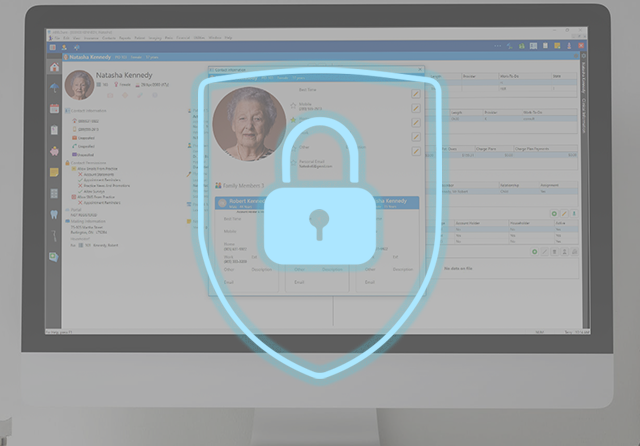Over the past few decades, cyberattacks have evolved into large-scale threats with devastating consequences. Governments, healthcare providers, businesses, service providers, and even individuals fall victim to ransomware, phishing scams, and malware.
Healthcare is one of the industries most at risk of cyberattacks. Patient data has a high price tag for hackers searching for personal health information (PHI) and financial records. In addition to complying with security best practices, there are some ground rules for keeping your practice data safe from hackers. In this blog post, we will explore the reasoning behind why your office should always keep all software and operating systems up to date from a data security standpoint.
Keep your Practice Management Software Up to Date
Regularly updating your dental software is one of the most important things you can do to keep your practice data complete, accurate, and secure. Software updates often include safeguards such as security patches and bug fixes that can prevent data corruption or loss and protect against cyber threats.
What is the risk?
To understand the risk of running outdated practice management software, you must consider the accelerating and ever-evolving nature of technology. It may seem safe to assume that, because you have never been the victim of an attack, you are well enough protected.
Cyber threats evolve over time, as do the measures available to overcome them. Software developers update software to respond to threats, both specific and theoretical, and to reduce the impact of diverse types of threats. Even updates with no discernible new features often contain changes designed to protect the user.
Continuing to use older software versions increases the number of potential threats while not providing potential remedies. For this reason, the more updates not applied, the greater the risk. It is important to install new releases that become available.
Keep Your Operating System Up to Date as Well
Your application software is not all that should be kept up to date. It is also crucial to keep the Operating System (OS) on each of your computers reasonably up to date.
Microsoft and other OS creators release patches regularly to protect against newly discovered or potential threats. After several years, ongoing support for each operating system ends. Take, for instance, the case of Windows 7 and 8. Microsoft ended support for Windows 7 in 2020 and will end support for Windows 8 in January 2023. When support ends, patches are no longer applied to protect that version of the operating system and hackers have more time to pinpoint and exploit security flaws.
While your dental software will often continue to run on computers with out-of-date operating systems, your entire system and all the software and data on it may be at risk. For a dental practice, the greatest risk is the loss, loss of use of, or exposure of practice data.
Cyber threats will continue to change. There is no perfect protection, but you can reduce the threat to your practice and patient data, by keeping your software and operating systems up to date.
Using software that provides regular, automatic software updates, such as ABELDent Local+ or ABELDent Cloud, is a great way to maximize practice security. Interested in learning more about ABELDent’s data-protecting measures? Read about the details here or contact us at 1-800-267-ABEL (2235).




